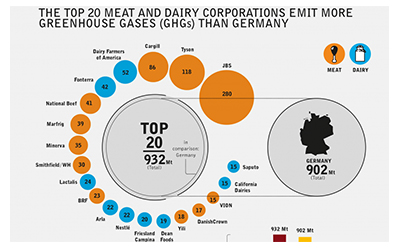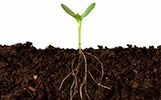| Rabobank Says Red Meat Farmers Need to Understand What Is Driving These Substitutes
Interest.co.nz | November 20, 2017
Report author, Rabobank global sector strategist for Animal Protein Justin Sherrard, says it is the 'growth' – rather than the current market size – of alternative proteins that is of greatest significance.
"Three of the strongest demand drivers for alternative protein products are essentially those that are 'pushing' consumers away from regular animal protein consumption, namely concerns around health, animal welfare and sustainability," he says.
"That said, there are also a number of 'pull drivers', such as curiosity to try new products, convenience and personal nutrition."
And with alternative protein companies adept at tapping into these drivers, Mr Sherrard says, market share growth is set to rise, particularly for meat substitutes – the most mature of the alternative protein products. There are also opportunities for insect or algae–based products, and lab–grown meat products, but in many cases inroads still need to be made to gain consumer trust and regulatory approvals.
Beef and Lamb Studies Threat Posed by Alternative Proteins 
Rebecca Howard, NBR | November 27, 2017
Beef and Lamb New Zealand is carrying out consumer research into alternative proteins in China and San Francisco in response to the rise of the rival products and wants to report back to the sector before the end of the year.
Big Meat and Dairy's Supersized Climate Footprint
The institute for agriculture and trade policy, together with the Heinrich Böll Foundation and Grain have produced the linked "infographic" page comparing emissions through large meat and dairy companies with those of a selection of oil companies. The presentation is disingenuous at best, and outright misleading at worst. 
This is the most direct attempt I have seen to compare emissions from the livestock sector with fossil fuel companies and the fact that they have chosen to paint the fossil fuel industry in a more positive light, despite the fact that the fossil fuel industry and its products accounted for 91% of global industrial GHGs in 2015, and about 70% of all anthropogenic GHG emissions (this is taken from the same source as the one they used, but not quoted on their page) is extremely worrying.
The authors were extremely selective in what they quoted from the Carbon Majors Report (PDF) on fossil fuel comanies, while they used FAO derived factors to estimate the emissions of livestock related companies, which are based on full LCAs, not the emissions of the companies named in the report.
As I have said before – we cannot deny that producing livestock causes GHG emissions, but the livestock sector must be more proactive in talking about how we are already reducing emissions, can reduce them further and sequester carbon moving towards carbon neutrality as the Australian beef industry is.
We should also highlight the difference between fossil emissions and short term GHGs such as enteric methane, which simply returns CO2 back to the atmosphere over a period of around 12 years.
Red Meat Industry Can Be Carbon–Neutral by 2030, Says MLA
Beef Central | November 22, 2017
Australia's red meat industry can become carbon neutral by 2030, putting it head and shoulders above its global competitors, MLA managing director Richard Norton told the company's AGM in Alice Springs this afternoon.
Australian Beef Sustainability Framework Backs MLA's Carbon–Neutral CommitmentBeef Central | November 23, 2017
The Australian Beef Sustainability Framework has backed MLA's commitment made yesterday that the red meat industry should aim to be carbon–neutral by 2030.
Dishing the Dirt on Soil Health a Big Draw 
Alexis Kienlen, Alberta Express | November 21, 2017
"Soil health or regenerative agriculture has gained a lot of popularity and interest," said conference chair Nora Paulovich, manager of the North Peace Applied Research Association. "I think producers as a whole are looking for answers as to how they can improve the health of their soils and reduce their reliance on inputs."
| |
